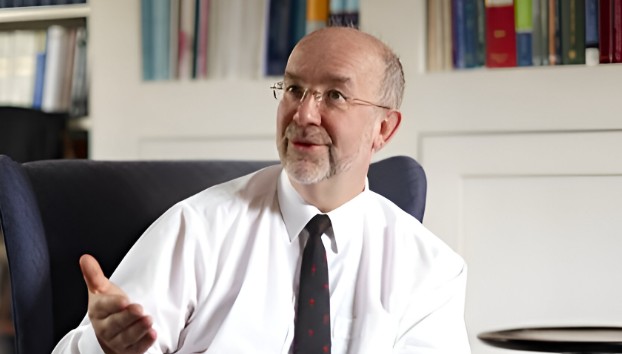Adrian Briggs: The Dual Legacy of a Legal Luminary and a Scientific Visionary

When the name Adrian Briggs is mentioned in academic and professional circles, it echoes with respect across two distinct spheres—law and science. On one hand, Professor Adrian Briggs KC (Hon) is an eminent scholar of private international law whose legal texts and court expertise have shaped legal doctrine in the UK and beyond. On the other hand, Dr Adrian W. Briggs stands at the forefront of genetic innovation, having worked on the Neanderthal genome and now pioneering gene therapy solutions.
Adrian Briggs KC (Hon): Architect of Modern Conflict of Laws
A Stalwart of the University of Oxford
Adrian Briggs KC (Hon) served for decades as a professor at the University of Oxford, specifically at St Edmund Hall, and eventually became an Emeritus Fellow. His academic journey began with a deep commitment to understanding how legal systems intersect globally. For over 40 years, he lectured on contract law and the notoriously complex field of private international law, also known as the conflict of laws.
Briggs became renowned for simplifying intricate legal issues and equipping generations of students and barristers with the intellectual tools needed to navigate cross-border litigation. His teaching style was both rigorous and engaging, earning him accolades from legal scholars and practitioners alike.
Leading Authority in Private International Law
Private international law governs disputes involving foreign elements—such as parties from different jurisdictions or contracts performed across borders. Briggs’s seminal contribution lies in how he has shaped the understanding of jurisdiction, choice of law, and recognition of foreign judgments.
His books are considered the gold standard in the field, particularly The Conflict of Laws and Civil Jurisdiction and Judgments, now in their 5th and 7th editions respectively. These texts are cornerstones in law faculties and chambers across the Commonwealth.
Impact Post-Brexit
The United Kingdom’s departure from the European Union created enormous legal uncertainty, especially regarding jurisdiction and cross-border legal cooperation. Adrian Briggs played a pivotal role in interpreting and adapting the UK’s approach to these challenges. His post-Brexit edition of Private International Law in English Courts provided much-needed clarity to the legal profession, helping to bridge the gap between EU regulations and domestic jurisprudence.
Recognition and Legacy
His influence has been recognised not only through numerous citations in court judgments but also through formal honours. In 2016, he was appointed King’s Counsel honoris causa for his exceptional contribution to legal scholarship. In 2024, he was made a Bencher of the Middle Temple, a role reserved for the most distinguished members of the legal community.
In 2021, upon his retirement, a festschrift titled A Conflict of Laws Companion was published in his honour, a rare academic tribute celebrating his contributions and influence across jurisdictions.
Dr Adrian W. Briggs: Champion of Modern Genetics and Biotechnology
The Scientific Journey
Dr Adrian W. Briggs carved out his career in a radically different domain—molecular biology and biotechnology. His academic roots lie in evolutionary anthropology, and he made significant contributions to one of the most ground-breaking scientific efforts of the 21st century: decoding the Neanderthal genome.
Working with the prestigious Max Planck Institute for Evolutionary Anthropology in Germany, Dr Briggs helped unlock the secrets of our ancient ancestors. This research has not only deepened humanity’s understanding of its evolutionary past but also laid the foundation for medical advances rooted in genetic diversity.
Innovations in RNA and Gene Therapy
More recently, Dr Briggs has transitioned into the biotech industry, where he serves as Chief Technology Officer at Shape Therapeutics, a Seattle-based company focused on RNA-based gene therapies. His work involves reprogramming the way cells function using synthetic RNA technologies—an area poised to revolutionise medicine.
From treating rare genetic disorders to developing therapies for cancer and neurological diseases, Dr Briggs is part of a new wave of scientific leaders turning theoretical research into tangible cures. His expertise in sequencing, data analysis, and RNA editing has made him a respected voice in the world of precision medicine.
Bridging Academia and Industry
One of the standout qualities of Dr Briggs’s career is his ability to traverse both academic and industrial landscapes. His work is widely cited in scientific journals, and he has co-authored numerous papers with leading researchers. His Google Scholar profile reflects thousands of citations, demonstrating the broad impact of his work.
At Shape Therapeutics, he leads research that integrates artificial intelligence, bioinformatics, and laboratory science—a rare blend of interdisciplinary knowledge that is pushing the boundaries of what’s medically possible.
Shared Values: Rigour, Excellence, and Global Reach
While Professor Adrian Briggs and Dr Adrian Briggs operate in vastly different fields, their careers share several common threads. Both have displayed intellectual fearlessness, breaking new ground in domains filled with complexity and global relevance. Their work transcends borders—legal or biological—and demonstrates a commitment to solving problems that affect people worldwide.
They also embody the value of clarity in communication. Whether it’s explaining the doctrine of forum non conveniens to law students or presenting RNA therapeutics to biotech investors, each has mastered the art of making the complex understandable without losing nuance.
Educational Impact
Both Adrian Briggs figures have had a strong influence on education. Professor Briggs’s textbooks are standard reading across law schools in the UK and internationally. His pedagogical legacy includes not just the content of his work, but also the clarity and accessibility with which he delivered it.
Similarly, Dr Adrian Briggs mentors young scientists and encourages multidisciplinary collaboration in labs. His approach combines hard data with human-centred questions—how can this treatment help patients? How do we scale this science responsibly?
Future Outlook
For Professor Briggs, retirement from active teaching does not mean the end of contribution. His legal texts continue to evolve with new editions, adapting to the ever-changing legal landscape. As the legal implications of international data transfers, arbitration, and digital contracts grow more intricate, his frameworks remain invaluable.
For Dr Briggs, the future is one of innovation. With the rise of personalised medicine and advancements in RNA editing, his leadership at ShapeTX places him at the vanguard of what many believe will be the next medical revolution. The therapeutic applications of his research are likely to expand rapidly in the coming decade.
Conclusion
The name Adrian Briggs may represent two individuals, but it also symbolises a shared commitment to excellence, integrity, and intellectual advancement. One has shaped the legal fabric of how nations and courts interact; the other is transforming the biological understanding of how life itself can be repaired and enhanced.
For aspiring lawyers and scientists alike, the careers of these two Adrian Briggses offer more than inspiration—they serve as benchmarks for what is possible when dedication meets vision. Whether writing judgments or sequencing genomes, their stories affirm that meaningful impact knows no disciplinary bounds.



